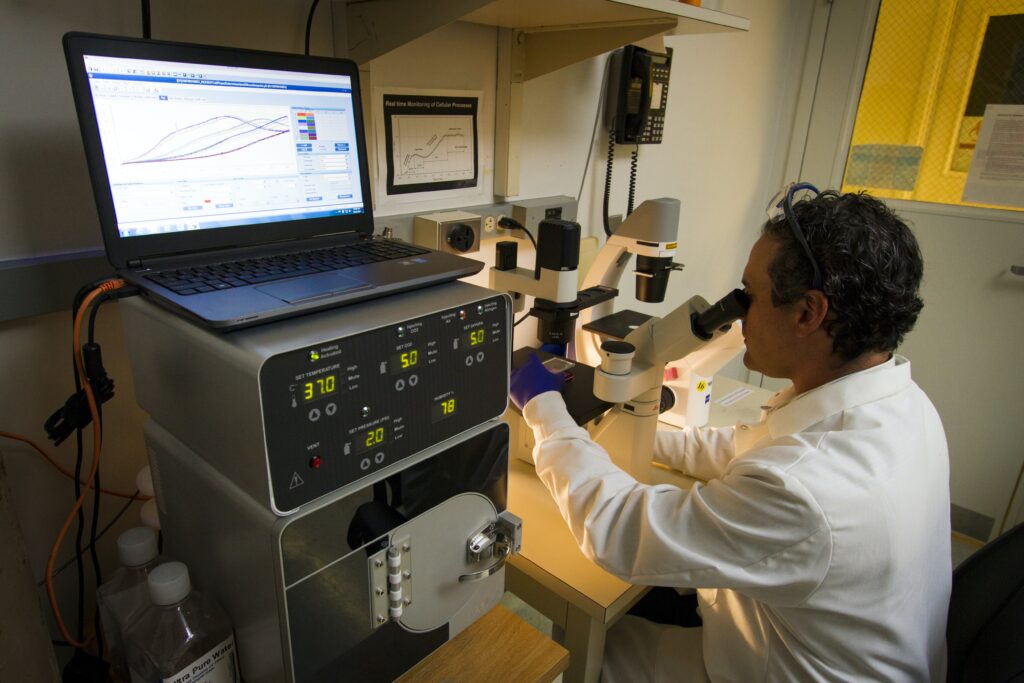In the podcast episode titled “Dr. Cat U: Navigating Autoimmune Conditions in the Healthcare Field,” the hosts, Amy Pearlman and Paul Deger, discuss the challenges faced by healthcare clinicians living with a physical or mental disability. The episode emphasizes the importance of balancing care delivery with personal health when managing a chronic condition. A guest joins the hosts to share her own experience with the onset of a health condition and how she advocates for her needs. The conversation highlights the strength of identifying as both a patient and a doctor, and emphasizes the need for self-care boundaries and a supportive workplace culture. The episode is part of the Burnout Antidote series, a co-production between Psych Hub and Janssen Neuroscience.
In this candid and thought-provoking conversation, Amy and Paul tackle a topic often overlooked in healthcare: the experiences of healthcare clinicians with chronic conditions. By sharing personal stories, discussing the role of self-advocacy, and exploring the impact of chronic conditions on work-life balance, the hosts shed light on the realities faced by these clinicians. The episode aims to raise awareness about the needs of clinicians with chronic conditions and encourages viewers to follow, subscribe, and share the podcast. For those interested in understanding the intersection of personal health and the healthcare profession, this episode provides valuable insights and perspectives.

Challenges of Navigating Autoimmune Conditions in the Healthcare Field
Introduction to Autoimmune Conditions
Autoimmune conditions are a complex group of disorders that occur when the immune system mistakenly attacks healthy cells and tissues in the body. These conditions can affect various organs and systems, leading to a wide range of symptoms and health challenges. As healthcare clinicians, we are not immune to autoimmune conditions ourselves, and we face unique challenges in navigating our careers while managing our personal health.
Impact on Healthcare Clinicians
Living with an autoimmune condition as a healthcare clinician can have a profound impact on our professional lives. The demands of our job, such as long hours, physically demanding tasks, and exposure to infectious diseases, can exacerbate symptoms and make it challenging to perform our duties. Additionally, the stress and pressure of our work environment can negatively affect our overall well-being and the management of our autoimmune condition.
Balancing Care Delivery and Personal Health
One of the significant challenges we face is finding a balance between providing quality care to our patients and taking care of our personal health. We often prioritize the needs of others above our own, putting our well-being at risk. It is crucial to recognize that we cannot pour from an empty cup and that prioritizing our health ultimately allows us to better serve our patients.
Advocacy for Personal Needs
Advocating for our personal needs is essential when navigating an autoimmune condition in the healthcare field. This includes open communication with colleagues and supervisors about our condition, requesting reasonable accommodations, and seeking support from our healthcare institutions. By speaking up for ourselves, we can ensure that our needs are met, and we can continue to thrive in our careers while managing our health.
Understanding the Experience of Healthcare Clinicians with Autoimmune Conditions
Video Discussion by Psych Hub
Psych Hub provides a valuable video discussion that sheds light on the experiences of healthcare clinicians living with disabilities, including autoimmune conditions. The discussion explores the unique challenges faced by these clinicians and offers insights into strategies to navigate their careers successfully while managing their health.
Personal Story of Dr. Cat U
Dr. Cat U shares her personal experience with autoimmune conditions and the impact they have had on her work as an internal medicine attending. She recounts her journey from the onset of her health conditions to the challenges she faced in navigating the healthcare system as both a patient and a doctor. Her story highlights the need for greater understanding and support for clinicians in similar circumstances.
Identifying as both a Patient and a Doctor
One of the unique aspects of being a healthcare clinician with an autoimmune condition is the dual identity of being both a patient and a doctor. This perspective provides valuable insights into the patient experience while also having a deep understanding of the medical field. This dual perspective can inform and enhance the care we provide to our patients and fuel our advocacy efforts.

Addressing the Needs and Well-being of Healthcare Clinicians with Autoimmune Conditions
Importance of Recognizing and Accommodating Needs
It is vital for healthcare institutions and colleagues to recognize and accommodate the needs of clinicians with autoimmune conditions. This includes providing flexible work arrangements, reasonable accommodations, and supportive environments. By acknowledging and addressing these needs, institutions can ensure the well-being of their clinicians and enhance patient care.
Creating Supportive Workplace Culture
Building a supportive workplace culture is crucial in promoting the well-being of healthcare clinicians with autoimmune conditions. This includes fostering an environment of empathy, understanding, and inclusivity. By creating a culture that values the health and well-being of its clinicians, healthcare institutions can cultivate a positive working environment that encourages openness and support.
The Strength of Self-Care Boundaries
Establishing self-care boundaries is a powerful tool for clinicians with autoimmune conditions. Setting limits on work hours, prioritizing rest, and engaging in activities that promote physical and mental well-being are essential for managing our conditions effectively. By practicing self-care, we can preserve our health, prevent burnout, and continue to provide high-quality care to our patients.
Strategies for Navigating Autoimmune Conditions in the Healthcare Field
Managing Stress and Burnout
Autoimmune conditions in the healthcare field can be exacerbated by stress and lead to burnout. It is crucial to implement effective stress management strategies, such as mindfulness techniques, regular exercise, and seeking support from mental health professionals. By prioritizing our mental health, we can better cope with the challenges of our condition and maintain a fulfilling career.
Seeking Support from Peers and Mentors
Seeking support from peers and mentors who understand the unique challenges of living with an autoimmune condition can be immensely beneficial. Connecting with others who share similar experiences allows us to exchange knowledge, gain valuable insights, and find encouragement. Support networks enable us to navigate our careers with confidence and resilience.
Implementing Self-Care Practices
Prioritizing self-care practices is essential for healthcare clinicians with autoimmune conditions. Engaging in activities that promote relaxation, such as practicing hobbies, spending time with loved ones, and seeking therapy, can significantly improve our well-being. By investing in our self-care, we can effectively manage our condition and continue to thrive in our chosen profession.

Advancing Healthcare Delivery for Clinicians with Autoimmune Conditions
Promoting Flexible Work Arrangements
Healthcare institutions and organizations play a vital role in advancing healthcare delivery for clinicians with autoimmune conditions. By promoting flexible work arrangements, such as part-time schedules, remote work options, and job-sharing, institutions can accommodate the needs of clinicians and foster a more inclusive and supportive work environment.
Utilizing Technology for Remote Care
Incorporating technology into healthcare delivery can be particularly beneficial for clinicians with autoimmune conditions. Telemedicine and remote monitoring tools allow for effective patient care while minimizing the physical demands and exposure risks in the workplace. By leveraging technology, clinicians can continue to provide quality care while managing their health.
Advocating for Systemic Changes
Advocacy for systemic changes is crucial for improving healthcare delivery for clinicians with autoimmune conditions. This includes advocating for policies that protect the rights of clinicians, promote workplace accommodations, and ensure inclusivity and accessibility. By actively engaging in advocacy efforts, clinicians can drive meaningful changes that benefit themselves and their colleagues.
Case Studies and Success Stories
Guest Experience and Advocacy Success
One of the case studies focuses on a guest who shares their experience with living and working as a healthcare clinician with an autoimmune condition. This individual’s story highlights the challenges they faced and the successful advocacy efforts they undertook to ensure their needs were met in the workplace. Their experience serves as an inspiration for other clinicians facing similar circumstances.
Overcoming Challenges in the Healthcare Field
Another case study explores the journey of a healthcare clinician who successfully overcame the challenges posed by their autoimmune condition while maintaining a fulfilling career. This case study delves into the strategies and support systems that were instrumental in their success, providing practical insights and guidance for other clinicians facing similar challenges.
Positive Impact on Patients and Colleagues
The case studies and success stories in this section emphasize the positive impact that healthcare clinicians with autoimmune conditions can have on their patients and colleagues. Despite the challenges they face, these clinicians continue to provide excellent care, inspire others, and contribute to the betterment of the healthcare community as a whole.
Importance of Self-Care and Well-being
Understanding the Impact of Self-Care
Recognizing the importance of self-care and its impact on our overall well-being is essential for healthcare clinicians with autoimmune conditions. Engaging in self-care practices not only benefits our physical and mental health but also enhances our ability to provide compassionate care to our patients. Prioritizing self-care allows us to recharge, reduce stress, and maintain a healthy work-life balance.
Strategies for Prioritizing Personal Health
Implementing strategies to prioritize personal health is crucial for clinicians with autoimmune conditions. This includes setting boundaries, maintaining a healthy lifestyle, and seeking ongoing medical care and support. By dedicating time and effort to our personal health, we can effectively manage our condition and continue to excel in our careers.
Balancing Work and Life
Maintaining a healthy work-life balance is a continuous challenge for healthcare clinicians with autoimmune conditions. Finding ways to integrate self-care, hobbies, and quality time with loved ones into our busy schedules is essential for our well-being. By striving for balance, we can prevent burnout and experience fulfillment both personally and professionally.
Creating a Supportive Healthcare Environment
Educating Healthcare Providers and Administrators
Educating healthcare providers and administrators about the unique challenges faced by clinicians with autoimmune conditions is crucial. By raising awareness and fostering understanding, we can create a more supportive and inclusive healthcare environment. Training programs and workshops can equip healthcare professionals with the knowledge and tools to provide appropriate accommodations and support.
Promoting Empathy and Understanding
Promoting empathy and understanding within the healthcare community is essential in supporting clinicians with autoimmune conditions. Celebrating diversity and fostering a culture of empathy and compassion ensures that all clinicians feel valued and supported. By promoting a culture of inclusivity, healthcare institutions can nurture an environment that encourages openness, understanding, and collaboration.
Emphasizing Inclusivity and Accessibility
Emphasizing inclusivity and accessibility in healthcare settings is vital for clinicians with autoimmune conditions. Ensuring that facilities, equipment, and resources are accessible to individuals with varying needs can significantly enhance their ability to excel in their roles. By prioritizing inclusivity and accessibility, healthcare institutions can create a more welcoming and supportive environment for all clinicians.
Resources and Support for Healthcare Clinicians with Autoimmune Conditions
Professional Organizations and Networks
Professional organizations and networks can provide valuable resources and support for healthcare clinicians with autoimmune conditions. These organizations often offer educational materials, networking opportunities, and advocacy resources. By joining these communities, clinicians can connect with peers, access important information, and find a sense of belonging.
Mental Health and Emotional Support
Mental health and emotional support are crucial for clinicians with autoimmune conditions. Seeking therapy, counseling, or support groups can help navigate the unique challenges of managing a chronic condition while working in a demanding healthcare field. These resources provide a safe space to share experiences, seek guidance, and receive emotional support.
Accessible Tools and Technologies
Accessible tools and technologies can greatly assist clinicians with autoimmune conditions in managing their health and work responsibilities. From apps and wearable devices to assistive tools and adaptive equipment, these resources can enhance productivity, accessibility, and overall well-being. By utilizing these tools and technologies, clinicians can optimize their performance and maintain their health.
Conclusion
Navigating autoimmune conditions in the healthcare field presents unique challenges for clinicians. Balancing care delivery and personal health, advocating for personal needs, and prioritizing self-care are essential strategies for success. By creating a supportive healthcare environment, advancing healthcare delivery practices, and sharing case studies and success stories, we can inspire and empower clinicians facing similar challenges. Ultimately, by prioritizing our own well-being, we can continue to provide exceptional care to our patients while managing our autoimmune conditions.

